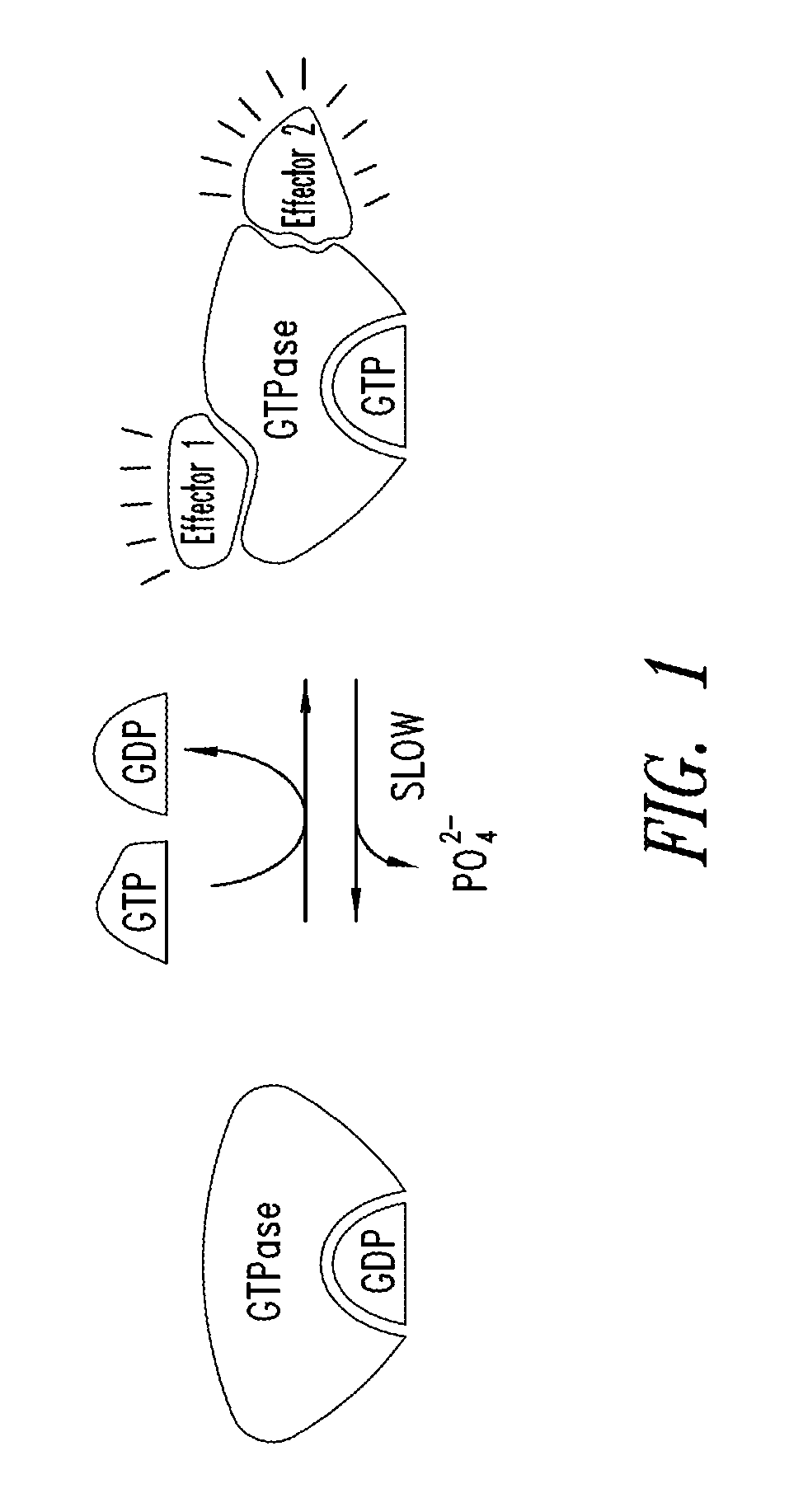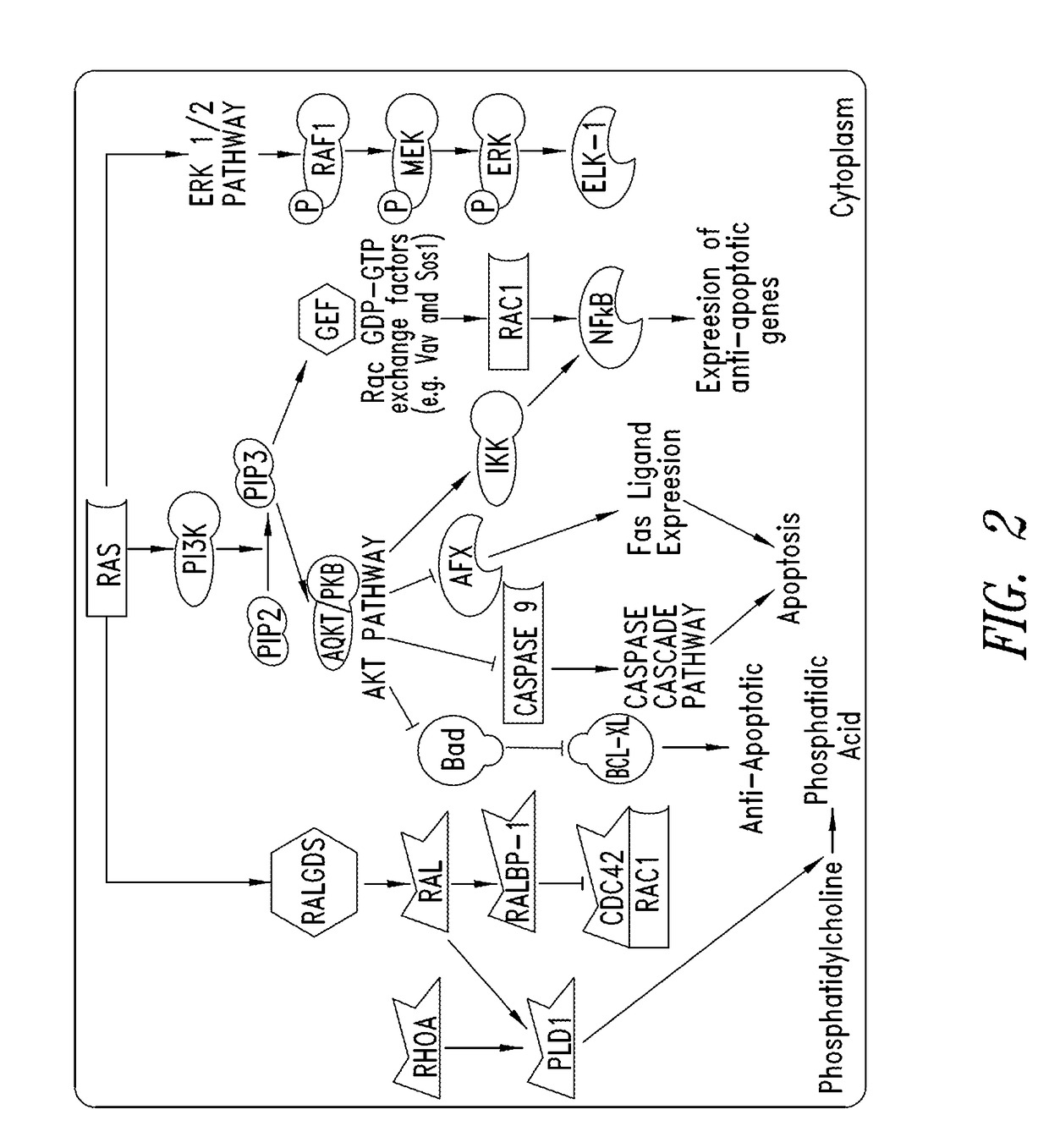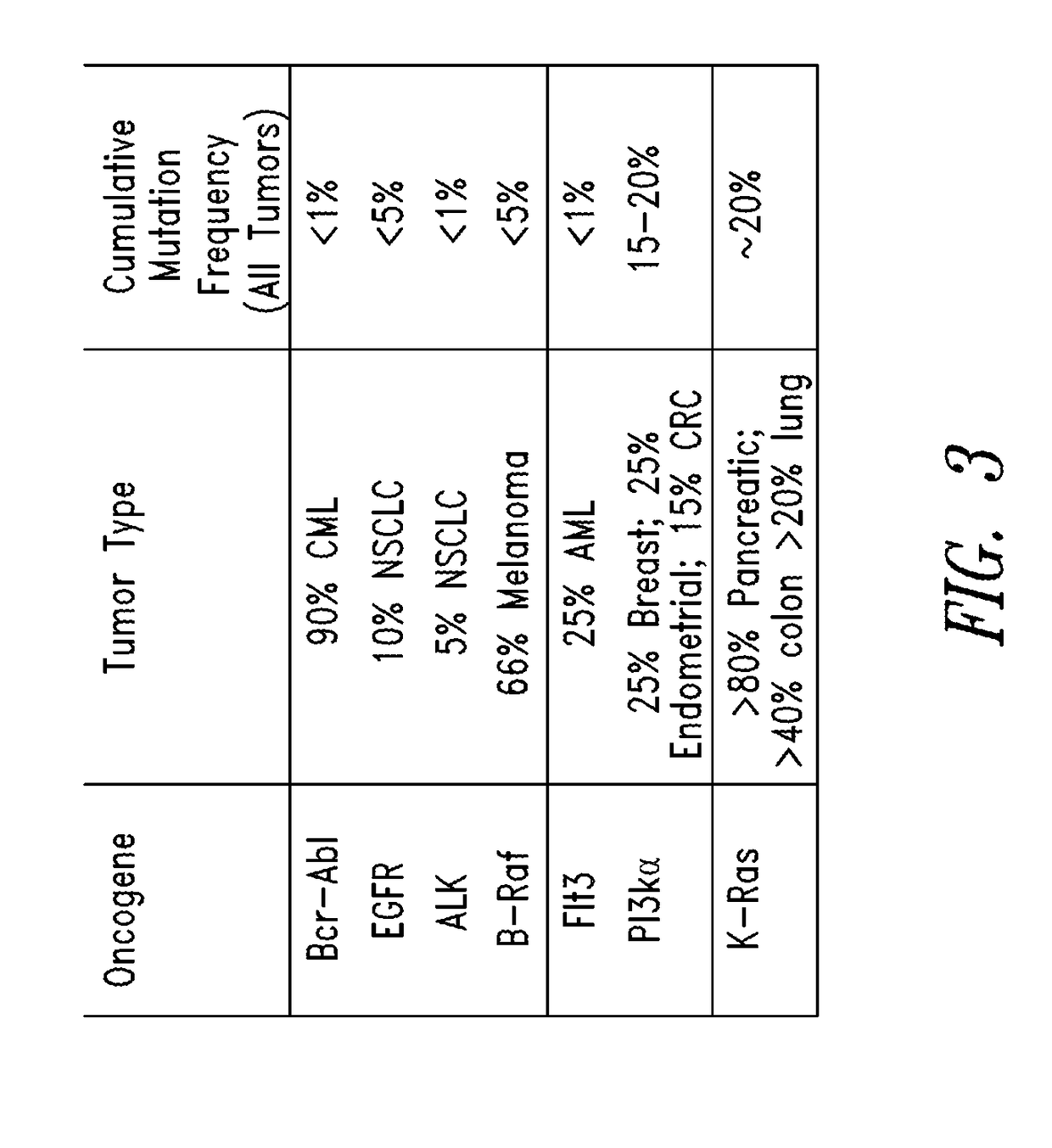Substituted quinazolines as inhibitors of KRAS G12C
a technology of substitution quinazoline and kras g12c, which is applied in the direction of organic chemistry, organic active ingredients, drug compositions, etc., can solve the problem of challenging the target of kras g12c with small molecules
- Summary
- Abstract
- Description
- Claims
- Application Information
AI Technical Summary
Benefits of technology
Problems solved by technology
Method used
Image
Examples
example 1
Synthesis of 1-(4-(7-chloro-6-(2-chlorophenyl)quinazolin-4-yl)piperazin-1-yl)prop-2-en-1-one (1)
[0521]
Compound 1 was prepared according to Method A as described below:
Methyl 2-amino-5-(2-chlorophenyl)-4-chlorobenzoate
[0522]A mixture of methyl 2-amino-5-bromo-4-chlorobenzoate (1.2 g, 4.54 mmol), 2-chlorophenylboronic acid (0.85 g, 5.44 mmol), Na2CO3 (1.44 g, 13.61 mmol), and Pd(PPh3)4 (0.52 g, 0.45 mmol) in 1,4-dioxane (30 mL) and water (6 mL) was stirred at 75° C. under argon for 16 h. The mixture was allowed to cool to room temperature (RT), and concentrated in vacuo. The residue was purified by flash column chromatography on silica gel (ethyl acetate / petroleum=8:1) to afford the desired product (1.22 g, 91% yield) as a yellow solid.
7-Chloro-6-(2-chlorophenyl)quinazolin-4-ol
[0523]A mixture of methyl 2-amino-5-(2-chlorophenyl)-4-chlorobenzoate (342 mg, 1.16 mmol), CH(OMe)3 (306 mg, 2.89 mmol), and NH4OAc (223 mg, 2.89 mmol) in MeOH (1 mL) in a sealed tube was stirred at 130° C. for ...
example 2
Synthesis of 1-(4-(7-chloro-6-phenylquinazolin-4-yl)piperazin-1-yl)prop-2-en-1-one (18)
[0528]
Compound 18 was prepared according to Method B as described below:
6-Bromo-7-chloroquinazolin-4-ol
[0529]A mixture of methyl 2-amino-5-bromo-4-chlorobenzoate (1 g, 3.95 mmol) and NH2CHO (20 mL) was stirred at 200° C. for 3 h. The mixture was allowed to cool to RT and quenched with water. The solid precipitate was collected by filtration and dried in vacuo to yield the desired product (669 mg, 66% yield) as a brown solid.
6-Bromo-4,7-dichloroquinazoline
[0530]A mixture of 6-bromo-7-chloroquinazolin-4-ol (669 mg, 2.59 mmol), PCl5 (1.6 g, 7.78 mmol) and POCl3 (15 mL) was stirred at reflux for 16 h. The mixture was allowed to cool to RT and then concentrated in vacuo to yield the desired product as a dark oil which was used directly in next step without further purification.
tert-Butyl 4-(6-bromo-7-chloroquinazolin-4-yl)piperazine-1-carboxylate
[0531]The above obtained crude 6-bromo-4,7-dichloroquinaz...
example 3
Synthesis of 1-(4-(6-chloro-5-(2-chlorophenyl)-1H-indazol-3-ylamino)piperidin-1-yl)prop-2-en-1-one (31)
[0534]
Compound 31 was prepared according to Method C as described below:
4-Methyl-N′-(2′,4,6-trichlorobiphenylcarbonyl)benzenesulfonohydrazide
[0535]To a stirred solution of 2′,4,6-trichlorobiphenyl-3-carbonyl chloride (5.5 g) in toluene at RT, NH2NHTs (3.8 g, 20.3 mmol) was added and the resulting mixture was stirred at 75° C. overnight. The mixture was allowed to cool to RT. The solid was collected by filtration and dried in vacuo to afford the desired product (6 g, 75% yield) as a white solid.
2′,4,6-Trichloro-N′-tosylbiphenyl-3-carbohydrazonoyl chloride
[0536]A solution of 4-methyl-N′-(2′,4,6-trichlorobiphenylcarbonyl)benzenesulfonohydrazide (2.3 g, 4.5 mmol) in SOCl2 (5.8 g, 45 mmol) was stirred at 75° C. for 4 h. The mixture was allowed to cool to RT, and then petroleum ether was added. The resulting mixture was stirred at 0° C. for 1 h. The precipitate was collected by filtratio...
PUM
| Property | Measurement | Unit |
|---|---|---|
| molecular mass | aaaaa | aaaaa |
| temperature | aaaaa | aaaaa |
| temperature | aaaaa | aaaaa |
Abstract
Description
Claims
Application Information
 Login to View More
Login to View More - R&D
- Intellectual Property
- Life Sciences
- Materials
- Tech Scout
- Unparalleled Data Quality
- Higher Quality Content
- 60% Fewer Hallucinations
Browse by: Latest US Patents, China's latest patents, Technical Efficacy Thesaurus, Application Domain, Technology Topic, Popular Technical Reports.
© 2025 PatSnap. All rights reserved.Legal|Privacy policy|Modern Slavery Act Transparency Statement|Sitemap|About US| Contact US: help@patsnap.com



